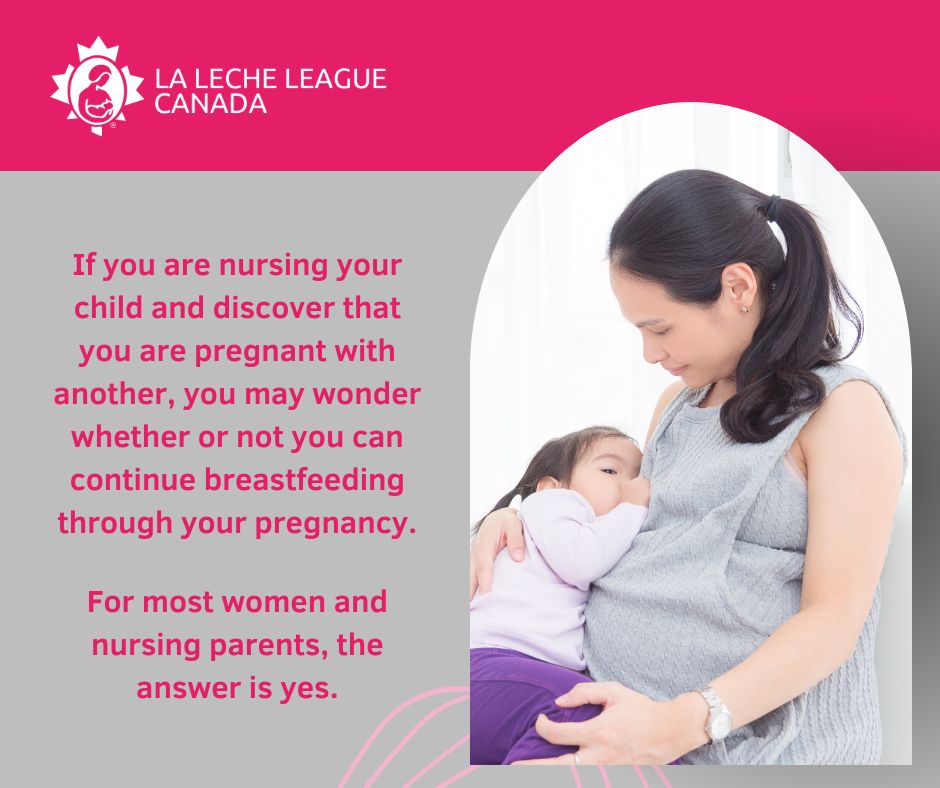
During the first trimester you may find that nursing is uncomfortable because your nipples are very sensitive. This irritation often diminishes after the first trimester. You may find that distracting yourself, while nursing, with a book, television program or social media is helpful. Relaxation techniques used during labour, such as slow breathing, may also be useful. If you have an older toddler, limiting the length of the nursing session by counting, saying the alphabet or singing a specific song might be a solution.
Most mothers find that their milk supply starts to drop around the 20th week of the pregnancy. Some babies will happily continue nursing in spite of the decreased milk supply, while others will naturally wean at this time.
After the new baby arrives, some toddlers who weaned, will ask to nurse again once the milk is abundant. Toddlers over a year old, who are eating solids and drinking fluids from a cup, are more likely to continue to nurse for comfort as their nutritional needs are being met in other ways. If your baby is under one year of age, you may need to increase the amount of food your baby eats in order to meet her nutritional needs. See Weaning - How and When it Happens for more information.
Many people worry that breastfeeding will cause uterine contractions and increase the potential for a miscarriage. The research does not support this. Nursing while you are in labour could significantly speed up contractions, but until your body is hormonally ready to go into labour, breastfeeding won’t cause it to do so.
The decision to continue to nurse during a pregnancy is a very personal and individual one. It is often made one day at a time or even one nursing at a time. It may depend on your child’s age and/or whether the breastfeeding relationship is still very important to your child.
If you have questions about nursing during a pregnancy or how to wean because of a pregnancy contact your local La Leche League Leader for information and support.
Please consider supporting LLLC.
Updated 2024
